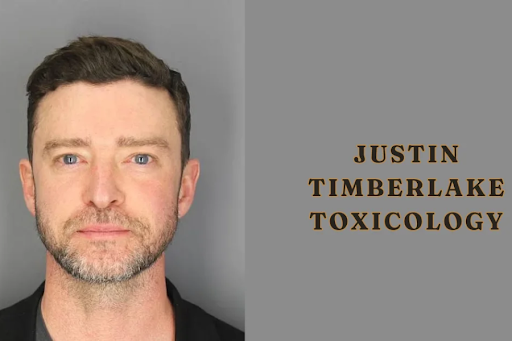Justin Timberlake toxicology discussions have recently taken center stage, but not because of his chart-topping music or iconic performances. Instead, the pop superstar found himself facing public scrutiny due to a DWI (Driving While Intoxicated) arrest. The incident stirred a storm of speculation, with media outlets, fans, and critics alike weighing in on the toxicology findings and what they mean. In today’s celebrity-obsessed world, rumors often travel faster than facts. That’s why it’s important to examine the Justin Timberlake toxicology situation carefully—separating truth from fiction and understanding the real story behind his DWI arrest. As we unpack this high-profile case, it also serves as an opportunity to shed light on the broader issues of substance influence, toxicology science, and personal accountability.
Understanding Toxicology: Why It Matters in DWI Investigations
At its core, toxicology is the branch of science that studies how chemicals, including drugs and alcohol, affect living organisms. In cases like the Justin Timberlake toxicology investigation, toxicology reports are critical for determining the presence and concentration of intoxicants in the body at the time of arrest. Law enforcement relies heavily on these reports to confirm impairment, especially when physical signs like slurred speech or erratic driving are observed. Without toxicology results, it would be difficult to substantiate claims of intoxication in court. The role of toxicology in DWI arrests goes beyond mere accusation—it is about scientifically proving impairment. This distinction is vital when analyzing incidents involving public figures because assumptions can often overshadow hard evidence.
Breaking Down the Events: What Happened During Justin Timberlake’s DWI Arrest?
Many fans were left with disbelief when the Justin Timberlake toxicology report broke. According to official reports, Timberlake was stopped by law enforcement for erratic driving behavior. Standard field sobriety tests were administered, followed by chemical tests, which typically include breathalyzer and blood tests, to determine the levels of alcohol or other substances in the bloodstream. While early rumors exaggerated the situation, suggesting extreme levels of intoxication, the reality painted a more nuanced picture. Like any other individual, Timberlake underwent the same protocols required by law when DWI is suspected. The public’s fascination with celebrity mishaps often blurs the reality that legal procedures treat everyone equally, regardless of fame.
Common Myths About Toxicology and DWI Cases: Setting the Record Straight
The Justin Timberlake toxicology situation highlights the need to address common misconceptions. One of the most persistent myths is that a high BAC (blood alcohol concentration) reading automatically equates to guilt or irresponsibility. In reality, how alcohol affects an individual can vary dramatically depending on body composition, tolerance levels, and the presence of other substances. There is also a false belief that toxicological testing are limited to examining illicit substances. Prescription medications and even over-the-counter remedies can influence driving abilities and show up in toxicology reports. Moreover, many wrongly assume that feeling “fine” means being legally sober, but impairment can occur at BAC levels that do not produce obvious symptoms. Public understanding must evolve beyond simplistic narratives when discussing toxicology and impaired driving cases.
Alcohol’s Influence on the Human Body: The Science Behind Impairment
Alcohol consumption triggers a series of chemical changes within the body. When alcohol enters the bloodstream, it affects the central nervous system almost immediately, slowing reaction times, impairing judgment, and reducing motor skills. In the context of Justin Timberlake toxicology, these effects are critical to understanding why even small amounts of alcohol can lead to dangerous driving behaviors. High BAC levels can lead to blurred vision, memory lapses, and lack of coordination—all of which dramatically increase the risk of accidents. Alcohol misuse has long-term effects that go beyond a single occurrence; repeated consumption can cause cardiovascular difficulties, liver damage, and mental health conditions like anxiety and depression. This broader understanding of alcohol’s impact sheds important light on why DWI laws exist and why they are rigorously enforced.
The Real-World Consequences of a DWI Arrest: Beyond the Headlines
The Justin Timberlake toxicology episode reminds us that DWI arrests have very real consequences beyond public embarrassment. First, there are direct legal consequences, such as steep fines, licence suspension, required courses of study, and perhaps jail time. A first-time offense might be treated leniently, but repeat offenses can escalate to felonies with severe penalties. Additionally, the financial burden doesn’t end with court costs; individuals often face skyrocketing insurance premiums and potential job loss, especially if their occupation requires a clean driving record. Social consequences, such as damaged reputations and strained personal relationships, are equally profound. Timberlake’s case underscores that fame offers no immunity against the ripple effects of impaired driving.
Lessons from Justin Timberlake Toxicology Case: A Wake-Up Call for Everyone
Analyzing the Justin Timberlake toxicology incident provides valuable insights into broader societal issues. One major takeaway is the importance of responsible decision-making, especially when it comes to alcohol consumption and driving. No matter how experienced or confident someone feels, substances can cloud judgment in subtle but dangerous ways. Timberlake’s experience also highlights the power of public perception and the importance of accurate reporting. Sensational headlines may sell stories, but they can also distort facts, leading to unfair character judgments. The lesson here isn’t just for celebrities—it’s a reminder for all of us to be mindful, responsible, and informed about the consequences of our actions.
Debunking Rumors: What the Justin Timberlake Toxicology Reports Actually Said
After Timberlake’s arrest, multiple media outlets fueled wild speculations about his toxicology results. Some rumors suggested outrageously high BAC levels, while others hinted at drug involvement. However, official reports clarified that the primary concern was alcohol impairment, with no significant evidence of illegal drug use. The Justin Timberlake toxicology findings showed elevated alcohol levels sufficient for a DWI charge, but far from the exaggerated portrayals that flooded social media. Separating verified facts from rumor-mongering is critical—not just for fairness to Timberlake, but to promote responsible media consumption in general.
The Broader Implications of Celebrity DWI Cases
Celebrity cases like the Justin Timberlake toxicology situation offer a magnified lens into how society grapples with issues like substance abuse, accountability, and justice. Celebrities often serve as role models, and their missteps can lead to public discussions that influence cultural attitudes. Timberlake’s case, for example, reignites conversations about the normalization of drinking culture, the stigma around seeking help, and the societal expectations placed on public figures. Instead of purely sensationalizing such incidents, perhaps it’s more constructive to view them as starting points for meaningful dialogue and change.
How Public Opinion Can Influence Justice: Media vs. Facts
The immediate frenzy surrounding the Justin Timberlake toxicology news underscores how public opinion can sometimes overshadow judicial processes. Viral stories can paint an individual guilty in the court of public opinion long before any official verdict is rendered. This phenomenon is dangerous because it risks undermining principles like the presumption of innocence. In Timberlake’s case, swift and often inaccurate reporting led many to form opinions without waiting for factual toxicology results. As a society, cultivating patience, critical thinking, and a commitment to truth is essential—especially when individuals’ lives and reputations are at stake.
Conclusion: Reflecting on Responsibility, Awareness, and Growth
The Justin Timberlake toxicology case stands as a powerful reminder that no one is immune to the consequences of poor choices—not even global superstars. It emphasizes the need for responsible substance use, careful media consumption, and empathy when public figures falter. Rather than merely gossiping or passing judgment, we can use these moments to have real conversations about personal responsibility, societal pressures, and how we can all strive to make safer, wiser decisions. Justin Timberlake’s DWI arrest is not just another celebrity scandal—it’s an opportunity for reflection, education, and collective growth.
FAQs:
Q1: What is the meaning of Justin Timberlake toxicology in this case?
A1: It refers to the scientific testing done to determine the substances, particularly alcohol levels, in Justin Timberlake’s body at the time of his DWI arrest.
Q2: Was Justin Timberlake found with drugs in his system?
A2: Official reports primarily indicated alcohol impairment, with no strong evidence suggesting the presence of illegal drugs.
Q3: What impact does a DWI have on a celebrity’s career?
A3: A DWI arrest can damage a celebrity’s reputation, lead to financial penalties, and affect endorsement deals or future work opportunities.
Q4: Why is toxicology testing important in DWI cases?
A4: Toxicology testing provides scientific evidence to confirm whether or not someone was impaired while operating a vehicle.
Q5: Did Justin Timberlake’s toxicology report show a very high BAC?
A5: Media exaggerated his BAC levels; the official reports showed elevated levels sufficient for a DWI charge but not outrageously high.
Q6: Can prescription medications impact DWI toxicology results?
A6: Yes, certain prescription medications can impair driving and influence toxicology findings, even if taken legally.
Q7: How fast does alcohol affect the body after consumption?
A7: Alcohol enters the bloodstream quickly, often within minutes, impacting mental and motor functions soon after.
Q8: What are some long-term effects of frequent alcohol consumption?
A8: Long-term heavy drinking can lead to liver disease, heart problems, mental health issues, and addiction.
Q9: How should we interpret celebrity DWI arrests like Justin Timberlake’s?
A9: We should focus on facts, avoid jumping to conclusions, and use the situation to discuss broader societal issues like alcohol responsibility.
Q10: What lessons can fans learn from the Justin Timberlake toxicology incident?
A10: Fans can learn about the serious risks associated with impaired driving and the importance of making responsible decisions regarding alcohol use.
Stay in touch to get more updates & news on Hoseasons!

